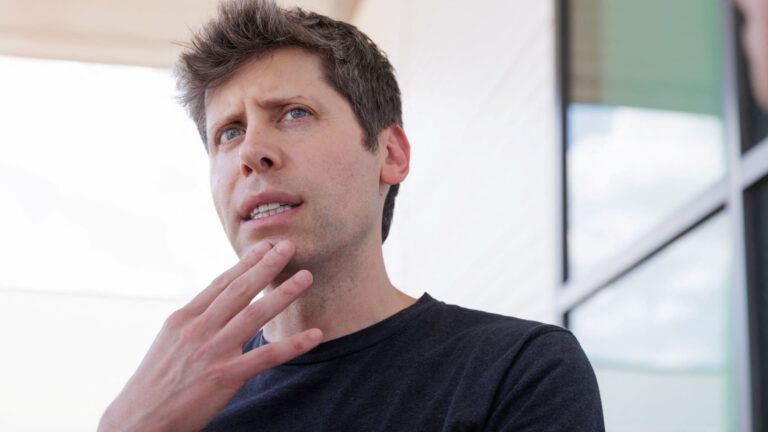OpenAI CEO Sam Altman speaks to media following a Q&A at the OpenAI data center in Abilene, Texas, U.S., Sept. 23, 2025.
Shelby Tauber | Reuters
OpenAI on Tuesday announced it has completed its recapitalization, cementing its structure as a nonprofit with a controlling stake in its for-profit business.
The artificial intelligence startup said its nonprofit is now called the OpenAI Foundation, and it holds an equity stake worth about $130 billion in its for-profit arm. OpenAI said its for-profit arm is now a public benefit corporation called OpenAI Group PBC.
Under the new structure, the OpenAI Foundation will hold a 26% stake in the for-profit, with 47% held by current and former employees and investors.
Microsoft, which has invested over $13 billion in OpenAI and backed the company as early as 2019, said it supports OpenAI’s recapitalization and now holds an investment in the PBC that is valued at $135 billion, or roughly 27% of the company on an as-converted diluted basis.
The company said it held a 32.5% stake in the for-profit on an as-converted basis, excluding OpenAI’s recent funding rounds.
Microsoft shares are up 3% Tuesday.
“The more OpenAI succeeds as a company, the more the non-profit’s equity stake will be worth, which the non-profit will use to fund its philanthropic work,” OpenAI said in a blog post.
OpenAI was founded as a nonprofit research lab in 2015, but has become one of the fastest-growing commercial entities on the planet in recent years. The startup is currently valued at $500 billion.
In 2024, the company announced plans to convert into a for-profit company, which would have wrested control from the nonprofit and kept it as a separate arm. But after facing pressure from civic leaders and ex-employees, OpenAI said in May that its nonprofit would retain control.
OpenAI Foundation will make an initial $25 billion commitment to work to accelerate health breakthroughs and technical solutions to AI resilience, OpenAI said Tuesday.
As part of the announcement, Microsoft said OpenAI has agreed to purchase an incremental $250 billion of Azure services, though Microsoft will no longer have a first right of refusal to be OpenAI’s compute provider.
The companies also outlined several additional changes to their partnership.
When OpenAI says it has reached Artificial General Intelligence (AGI), which is a term for an AI system that rivals or exceeds human intelligence, that claim will have to be verified by an independent expert panel, Microsoft said. The revenue share agreement between the two companies will remain until that panel verifies AGI.
Microsoft can now pursue AGI independently or in collaboration with third parties, and OpenAI can now jointly develop some products with third parties.
OpenAI remains Microsoft’s frontier model partner. Microsoft said its IP rights for both models and products are extended through 2032, and include models post-AGI. OpenAI’s consumer hardware is excluded from Microsoft’s IP rights.
“As we step into this…
Read More: OpenAI completes restructure, solidifying Microsoft as a major shareholder



